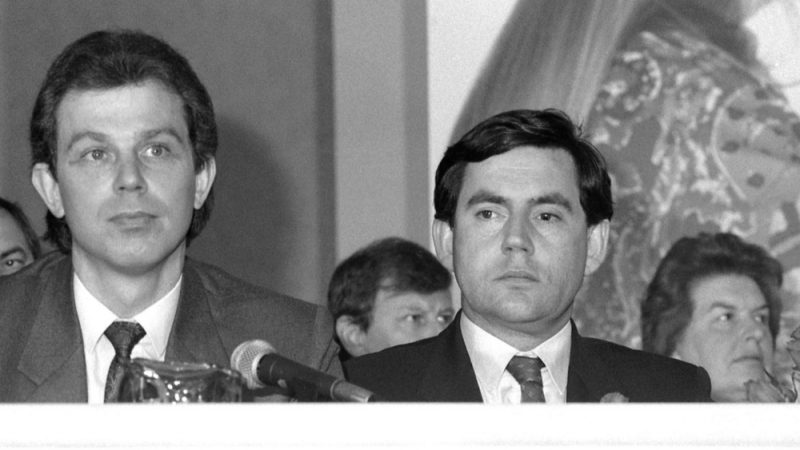
None of us need reminding that 1997 was a long time ago and the world is a very different place today.
For campaigners the changes are profound: news cycles that stretched over days are now compressed into hours or even minutes, social media gives everyone from the crank to the expert to the expert crank a voice in every debate, mobile technology puts the world’s information at our fingertips and leaves us nowhere to hide. It’s an always-on, always-trolled, always-rebutted world.
When the three of us recently spoke at a recent Labour History Group event, their first on the lessons from the 1997 campaign and the government that followed, we did not pretend that a simple translation of the Millbank Tower of nearly 30 years ago was the route to the next Labour landslide.
But we do think there are some things that need to be remembered from that time, and wanted to set them out for a wider audience.
1992 and 2019 defeats were reminders there is no comfort in coming second
In 1997, as in 2024, our perspectives were shaped by defeat. Then, as now, we’d lost three elections in a row and then, as now, the last of these was the worst. In 1997 that was because it was an election we expected to win right up to and even, briefly, beyond the close of polls. This time its because we suffered a defeat in 2019 on a scale nobody under the age of 90 would even remember.
In both ’92 and ’19, Labour’s loss was rooted in a lack of trust and because, too often, we formed policies and took positions shaped by internal pressures and lobbying rather the voters’ concerns.
It is not that 1992 and 2019 are mirror images. But both were reminders that there is no comfort in politics in coming second or kidding yourself that you have won the argument when all you have been doing is arguing with yourself.
From 1992 we took away the realisation that winning the next time was an existential matter: voters give up on parties that refuse to change to win.
Demonstrating change to the party was important in 1997
In 1997 we relentlessly focused on the policy and presentational changes needed to win again, and it’s also plain that changing the party and addressing the big issues that turned voters off in 2019 is a major focus for Keir Starmer’s leadership. But there can never be room for complacency.
The most important people in all our thoughts in the late nineties were the millions of voters who had yearned for change in 1992 but felt, in the end, that they could not trust us to deliver it.
A continual emphasis on talking to them and demonstrating that change was real and deep dominated everything we did.
Discipline, discipline, discipline
Discipline – from the shadow cabinet at the top, to local councillors at the bottom – matters. In 1997 the vast majority of party members understood the need to be the adults in the room and that, whilst we might not agree on every policy, we did agree to back the policies that were chosen. We need to trust the process.
Perhaps the most important thing is to always think about the politics. In the public realm everything you say will be taken down and used as evidence, either for or against you. Staff need to act as expert counsel to the politicians, telling them when things work, and need to be repeated, or warning them when they are making mistakes.
Campaigns can be high stress but also some of greatest moments you will live through
Election campaigns aren’t particularly fun. They can be high-stress events – after all the future of the country is at stake and nobody wants to be the person who makes the mistake that wrecks it all.
And, to be brutally honest, when you are on the inside you also get to see the policy weaknesses and personal frailties at the highest level of magnification. Sleepless nights of worry are not uncommon.
But they are also some of the greatest moments you will ever live through. A good campaign brings together hundreds of people at the centre and hundreds of thousands across the country trying to change things for the better.
That unity of purpose is precious thing and what will make you rise from your poor sleep and get into the office for 6.45am or earlier ready and willing to face the challenges.
None of us would swap our experience of those times for anything. But that great feeling of camaraderie didn’t happen by accident. It was lived and worked for every day because we really did believe Britain deserved better.
It was worth the hours and the effort to make it happen.
The authors spoke at a recent Labour History Group event on ‘Lessons from Labour’s pasts: Tony Blair and the legend of Excalibur’.
The Labour History Group has an event next month on ‘Lessons from 1997: Making policy for Downing Street’.
If you have anything to share that we should be publishing about this or any other topic involving Labour, on record or strictly anonymously, contact us at [email protected].
Sign up to LabourList’s morning email for a briefing everything Labour, every weekday morning.
If you can help sustain our work too through a monthly donation, become one of our supporters here.
And if you or your organisation might be interested in partnering with us on sponsored events or content, email [email protected].




More from LabourList
‘Tackling poverty should be the legacy of Keir Starmer’s government’
‘The High Court judgment brings more uncertainty for the trans community’
‘There are good and bad businesses. Labour needs to be able to explain the difference’